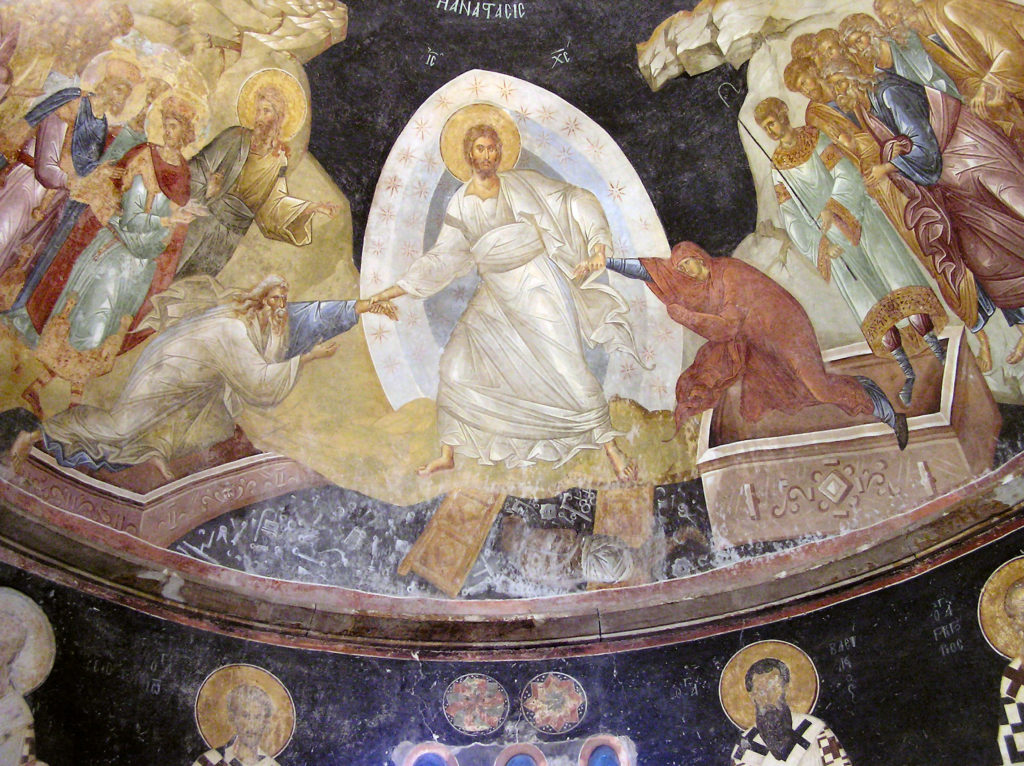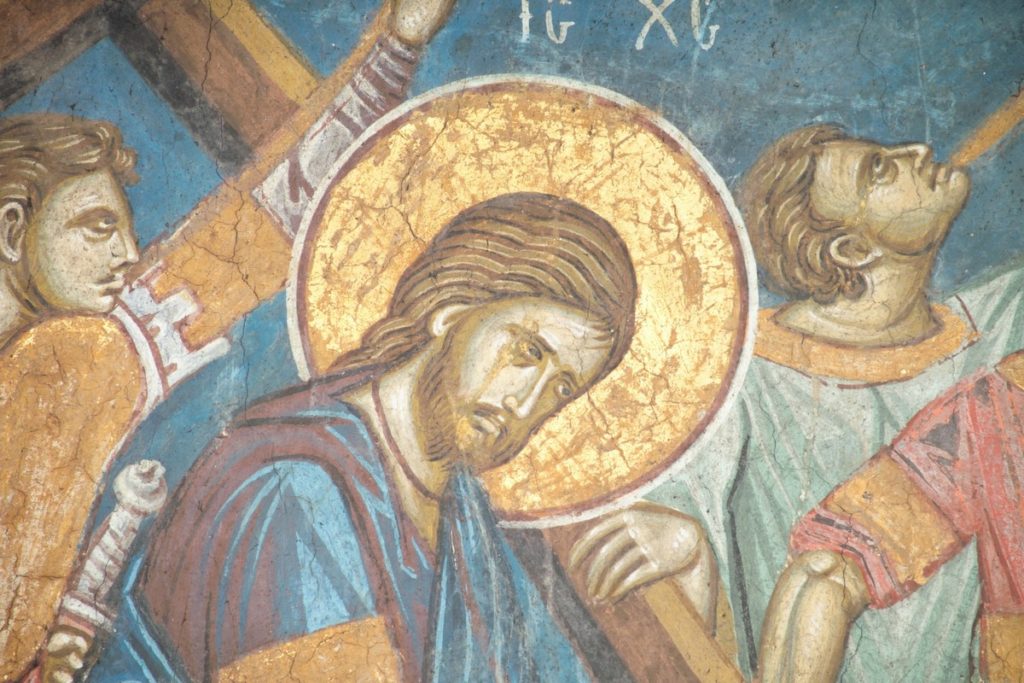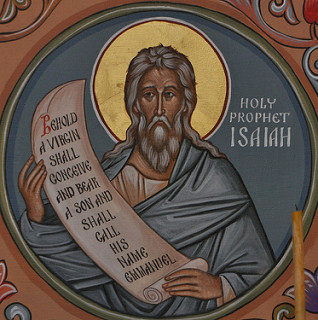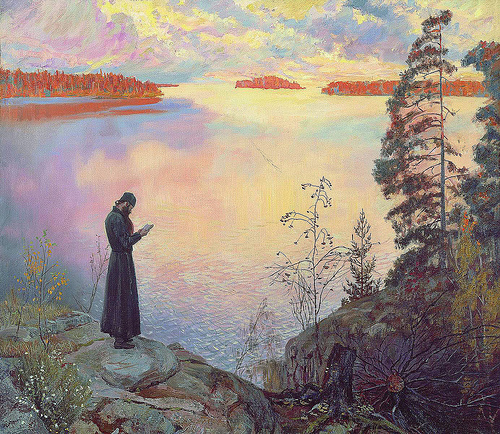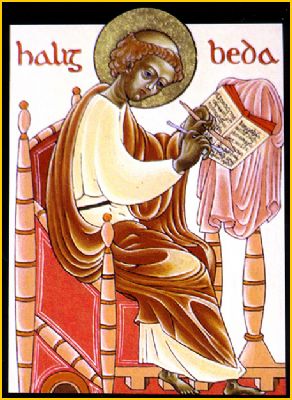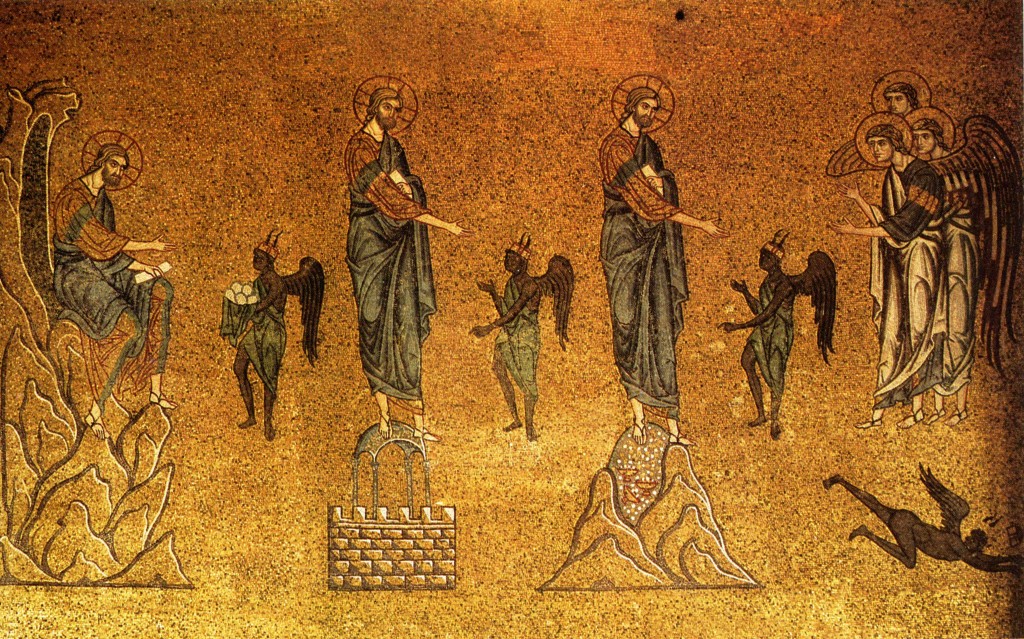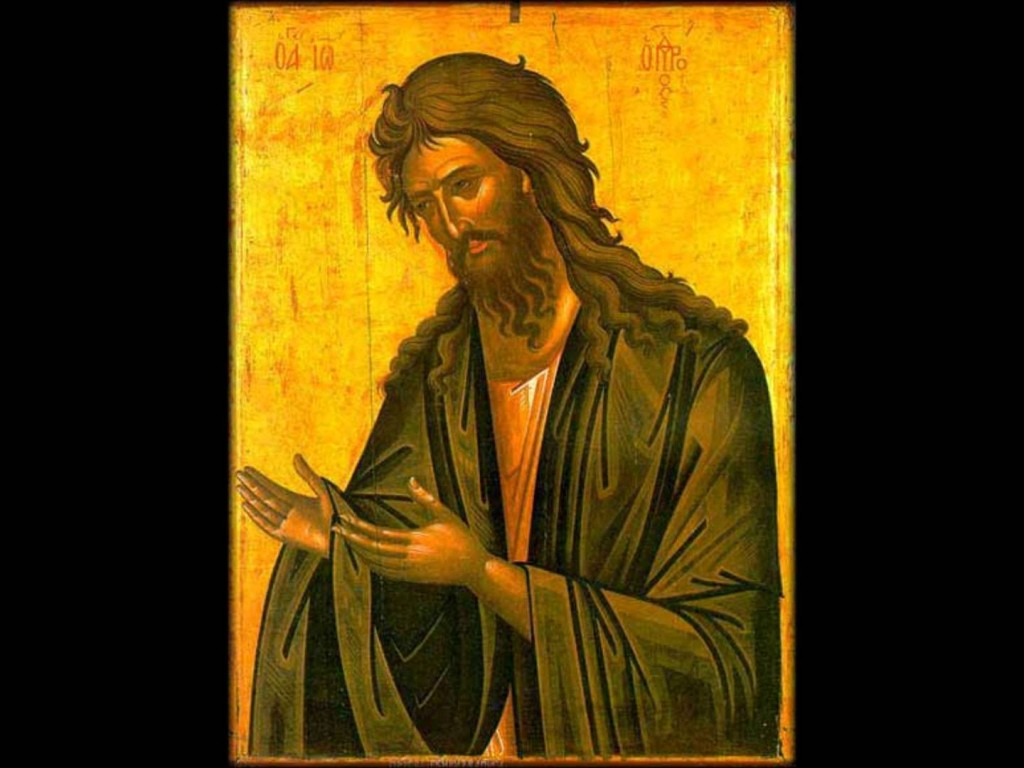The Son of Thunder
The Gospel Readings of the Pentecost
I Pascha Friday – John 2: 12-22
Listen to an audio podcast of this post at https://www.spreaker.com/episode/pascha-i-friday-the-only-sign-we-need–65725188
At that time, Jesus went down to Capernaum, he, and his mother, and his brethren, and his disciples: and they continued there not many days. And the Jews’ passover was at hand, and Jesus went up to Jerusalem, And found in the temple those that sold oxen and sheep and doves, and the changers of money sitting: And when he had made a scourge of small cords, he drove them all out of the temple, and the sheep, and the oxen; and poured out the changers’ money, and overthrew the tables; And said unto them that sold doves, Take these things hence; make not my Father’s house an house of merchandise. And his disciples remembered that it was written, The zeal of thine house hath eaten me up. Then answered the Jews and said unto him, What sign shewest thou unto us, seeing that thou doest these things? Jesus answered and said unto them, Destroy this temple, and in three days I will raise it up. Then said the Jews, Forty and six years was this temple in building, and wilt thou rear it up in three days? But he spake of the temple of his body. When therefore he was risen from the dead, his disciples remembered that he had said this unto them; and they believed the scripture, and the word which Jesus had said.
When St. John uses the term “the Jews,” it usually refers to the religious authorities of the Old Testament Church, members of the Sanhedrin, the priestly authorities, and the scribes and Pharisees who were considered the teachers of the Law. Less often, he uses the term to mean the entire Israelite people as the chosen people of the Old Testament, from whom the Savior of the world would come, as when Christ tells the Samaritan woman, “…for salvation is of the Jews (John 4:22).”
Here “the Jews,” in the former sense, demand from the Lord a “sign” to justify His courageous action in cleansing the Temple of those who were turning His Father’s House into a “house of merchandise.” The evident purity of intention and zeal for the holiness of the Temple – the Lord’s evident virtue – meant nothing to them; they claimed that He had to produce a marvel in order to prove His authority.
St. John Chrysostom asks, “Why did they ask for a sign?”
But was there a need for a sign before putting a stop to their evil practices and freeing the house of God from such dishonor? Was not the fact that He had such great zeal for the house of God the greatest sign of virtue? …They did not, however remember the prophecy [i.e., the words of Psalm 68 quote by the Evangelist, “The zeal of Thine house hath eaten me up.”] but asked for a sign, at once irritated that their shameful traffic was cut off, while at the same time expecting to prevent Him from going further. For this dilemma, they thought, would oblige Him either to work miracles or give up His present course of action. But He refuses to give them a sign, as He did on a similar occasion, when He answers them that an evil and adulterous generation seeks after a sign, and no sign shall be given to it except the sign of Jonas the prophet (Matthew 16:4) – only the answer is more open there than here. He, however, Who even anticipated people’s wishes and gave signs when He was not asked, would not have rejected here a positive request, had he not seen that their minds were wicked and false and their intention was treacherous…As it was, Jesus answered and said to them, “Destroy this temple, and in three days I will raise it up.” – Homilies on the Gospel of John 23.2
The Temple authorities were extremely religious and extremely immoral at the same time. Such personalities, a type familiar throughout the history of the Old Testament and New Testament Churches, often emphasize supposed signs, visions, etc., by means of which distraction they separate their gullible followers from the essential miracle of Faith leading to salvation. Signs and wonders, even real signs and wonders, apart from the confession of the true Faith and a life lived in repentance, are simply entertainment. They do not give salvation and may in fact prevent it.
Here Our Lord gives the hypocrites the same answer that He gives to the same demand made on a different occasion, as recorded by Ss. Matthew, Mark, and Luke. The sign that He will give them is His resurrection from the dead by His own power. In the synoptic Gospels, He refers to His Resurrection as the fulfillment of the “sign of Jonas.” Here, in St. John, He describes the Resurrection as the rebuilding of the Temple, not the temple of stone in which the Jews worshipped, but the temple of His Body.
Let us recall that in another place, the Lord concludes His account of Lazarus and the Rich Man with these words, “If they hear not Moses and the prophets, neither will they be persuaded, though one rose from the dead (Luke 16:31).” The all-good Lord, Who did in fact work countless miracles out of love for mankind, without being asked, knew that even this greatest miracle of His resurrection would not change the hearts of these men, because they had closed their hearts to the true meaning of Moses and the Prophets, and instead twisted the sacred words of the Scriptures to invent their own self-serving false religion.
The Arian heretics, who claimed that the Son was a creature and not able to raise Himself from the dead – that He had to be raised by the Father or He would not have risen – are clearly refuted by the words of Jesus Himself: “Destroy this temple, and in three days I will raise it up.” When we hear the expression that God the Father raised up Jesus, this does not mean that Jesus is not God, for the action of the members of the Holy Trinity are always a single action.
St. Ambrose comments on the Lord’s saying thus:
We can easily show that the words treat of the Son’s action, for the Son Himself indeed raised His own body again, as He Himself said: “Destroy this temple, and in three days I will raise it up.” And He himself quickens us together with His body: “For as the Father raises the dead and quickens them, so also the Son quickens whom He will (John 5:21).” He, therefore, Who has achieved the work of our resurrection, is plainly pointed out to be truly God. – On the Christian Faith, 3.2.13-14
Here St. Ambrose does what all the Fathers do, because they were not idle debaters but serious men tasked with leading souls to salvation. He leads the reader from the theological truth in question – in this case the Resurrection of Christ – to the moral demand of basing one’s life on that truth. Christ raised Himself from the dead, and He raises us also by the power of that same Resurrection. He “…has achieved the work of our resurrection…”
At the baptism of every Orthodox Christian we read the words of St. Paul that we heard last week at the Vesperal Liturgy of Holy Saturday: “Therefore we are buried with him by baptism into death: that like as Christ was raised up from the dead by the glory of the Father, even so we also should walk in newness of life (Romans 6:4). ” Our resurrection of the soul has already taken place, by the infinite power of His Resurrection, through baptism. We have only to preserve and multiply the grace, by means of this infinite power, which is of God and not of man, so that our resurrection of the body on the Last Day will be not unto eternal torment, but unto unceasing joy in the light of His countenance.
Christ is Risen!
